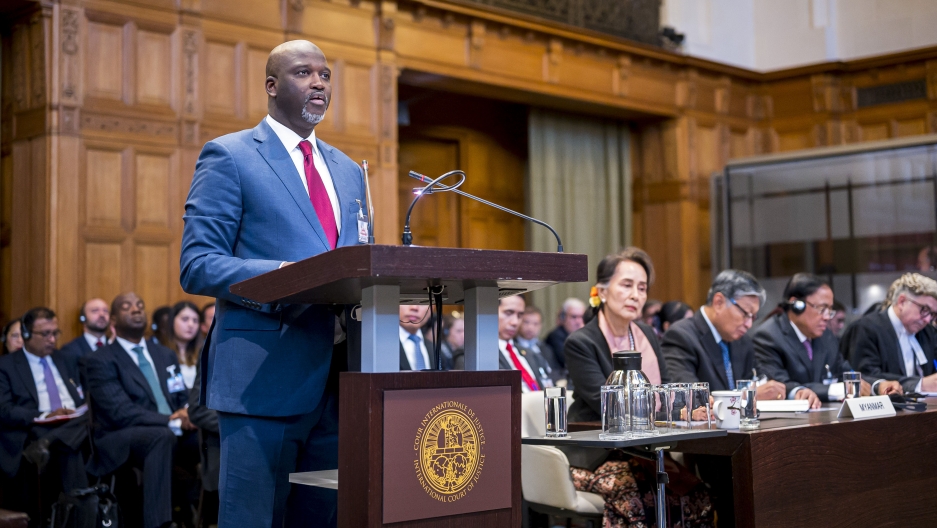The International Court of Justice (ICJ) has ruled in favor of the Gambia, finding Myanmar had “caused irreparable damage to the rights of the Rohingya”. The court ordered Myanmar to take measures to protect the Rohingya from genocide.
The unanimous ruling, delivered on January 23, orders Myanmar to comply with all provisional measures requested by the Gambia in the hearings held in December. These include a declaration that the Tatmadaw (Myanmar army) “has breached and continues to breach its obligations under the Genocide Convention.” The provisional measures also include legal action against the military officers responsible for alleged executions, village burnings and other humans rights abuses committed in the 2017 “clearance operations” that displaced more than 750,000 Muslims from Rakhine State who call themselves Rohingya.
Myanmar will face considerable political pressure to comply with the ICJ, which has justices from both Russia and China. The ruling is certainly a blow for State Counsellor Daw Aung San Suu Kyi and her NLD government, which risked its global political reputation to defend the Tatmadaw in the Hague. But the true consequences may be more economic than political. A guilty verdict from the UN’s highest court may cause potential investors and trade partners to heed a recommendation by the UN Fact Finding Mission for Myanmar to boycott the Tatmadaw’s vast business empire. The United States, Australia and Europe may also issue new sanctions against top military officials.
However, the fallout of the ICJ ruling remains to be seen, and it is also likely that Myanmar’s global trade interests will weather the storm. A historic visit from Chinese president Xi Jinping last week ended in more than 30 new trade agreements, and it is unlikely the ruling will sour Myanmar’s growing relationship with China. Japan, Thailand and other Asian nations also deepened economic ties in 2019 despite Myanmar’s human rights controversies.


